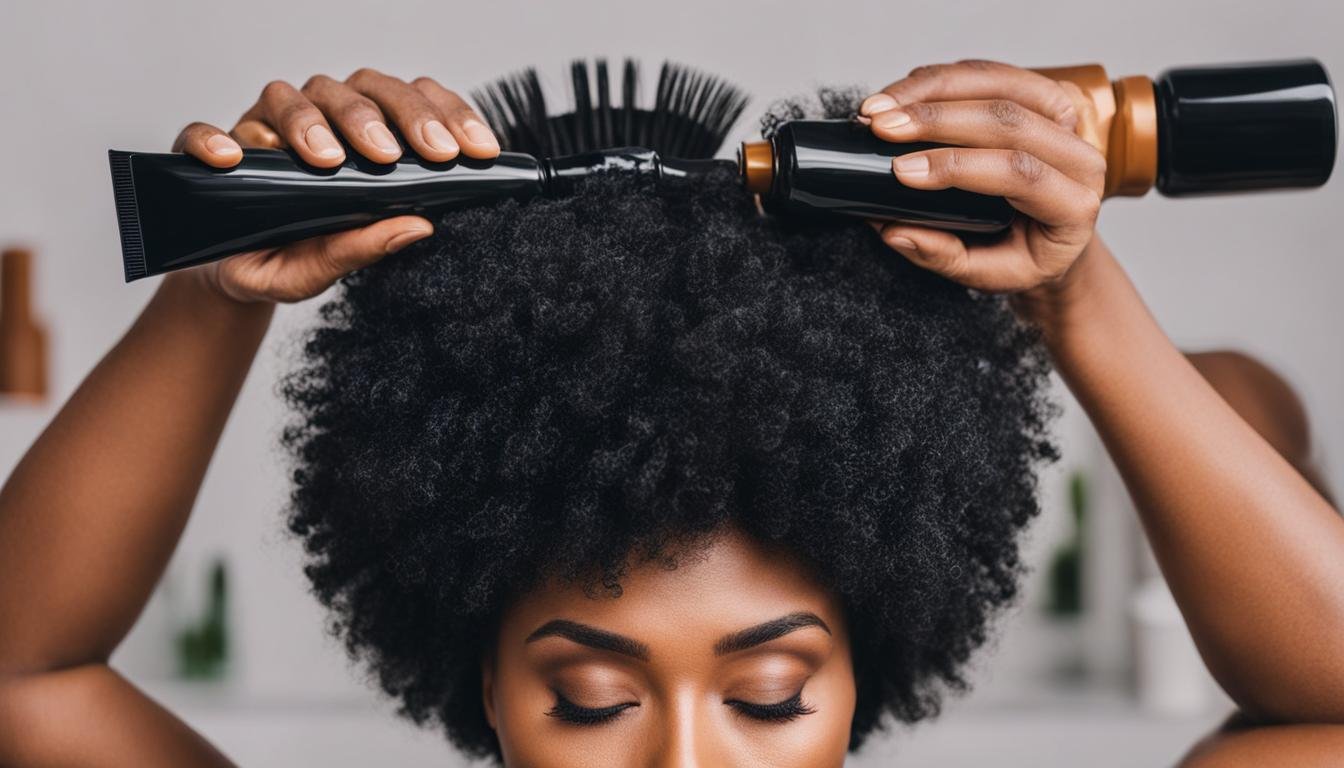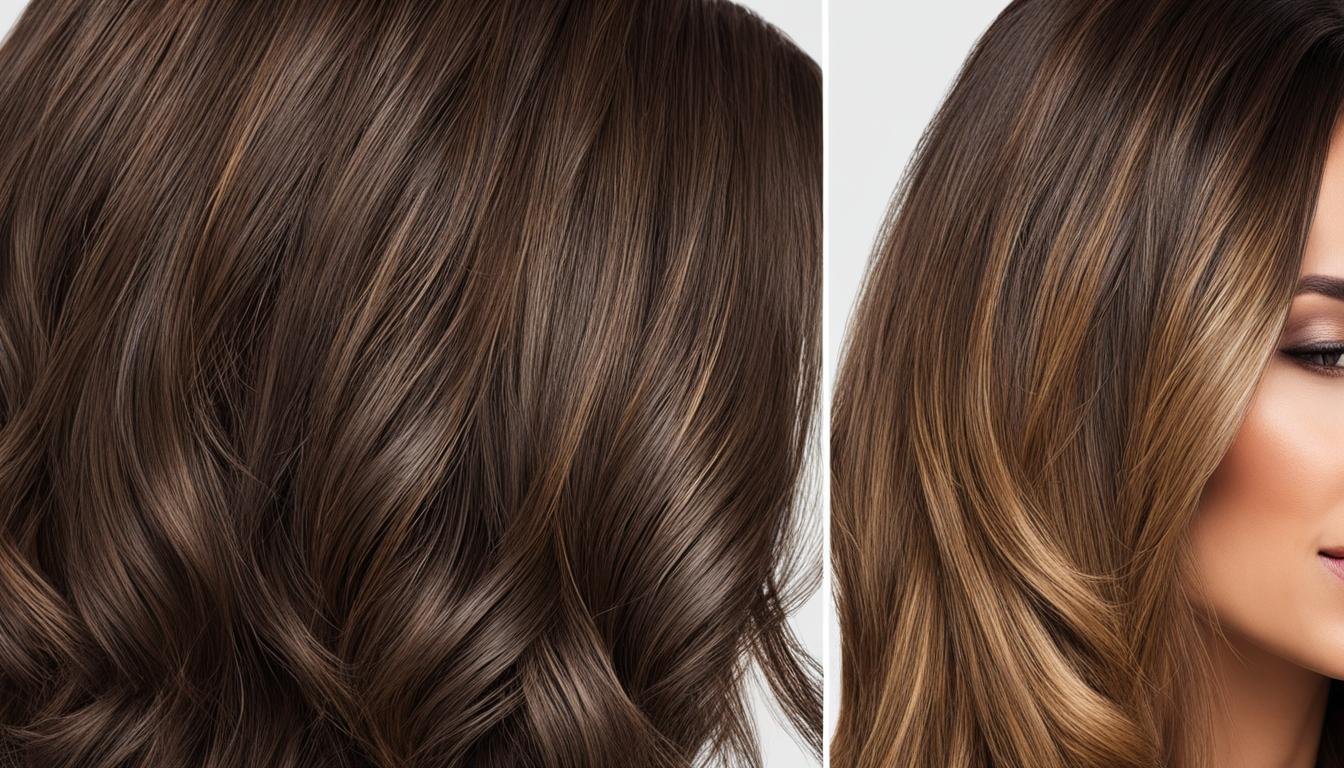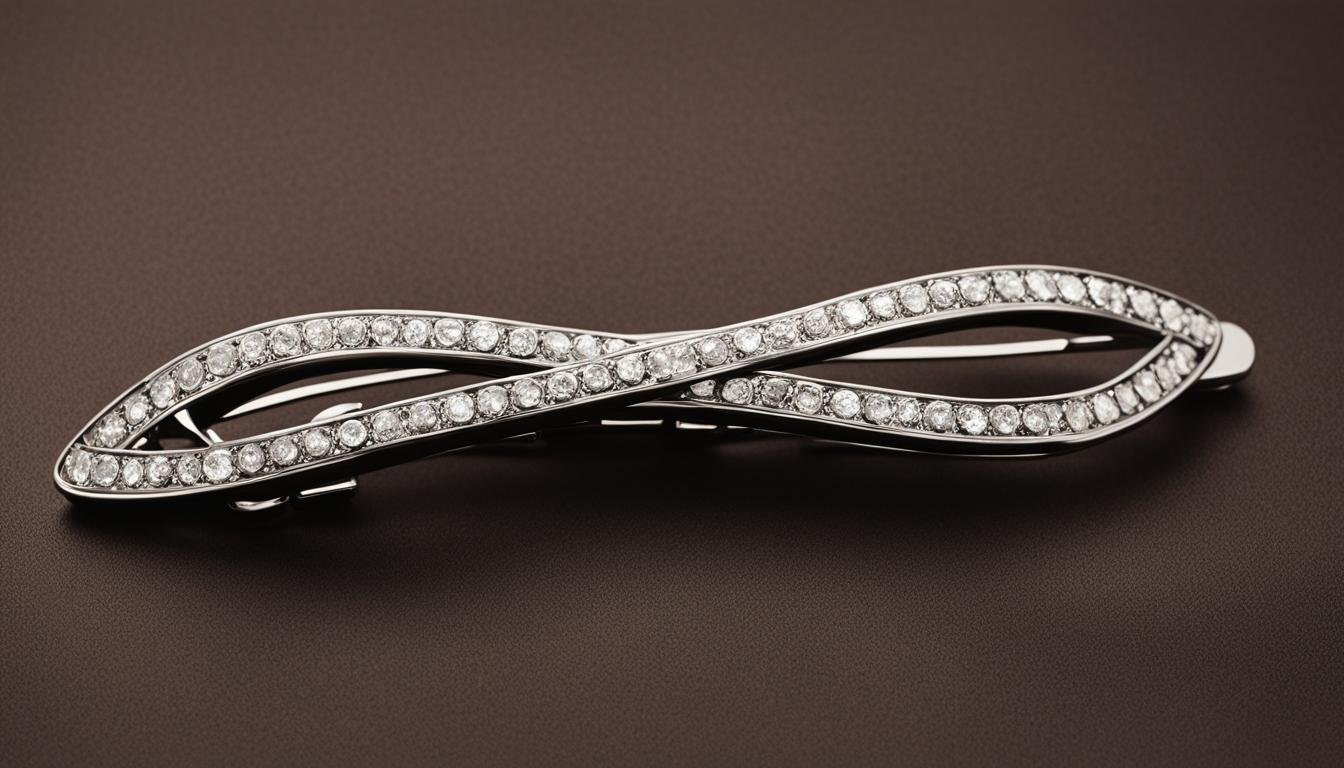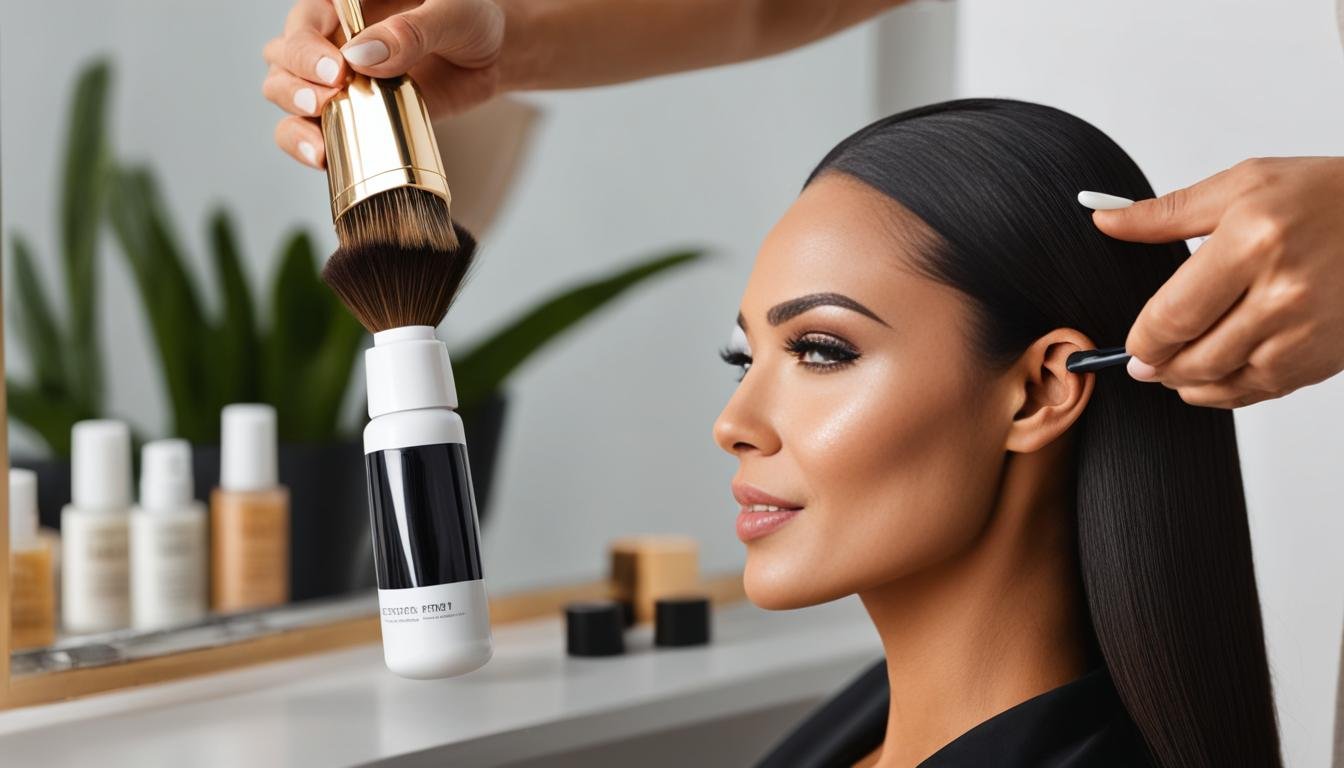Pregnancy is a time of numerous physical changes, and one common concern many women experience is dry hair. If you’ve noticed that your hair feels drier than usual during pregnancy, you’re not alone. It’s a normal physiological occurrence that can be attributed to hormonal shifts, including increased levels of estrogen and progesterone.
These hormonal changes can affect the hair growth cycle, leading to less shedding of hair. As a result, your hair may appear thicker and fuller. However, the decrease in hair shedding can also contribute to dryness, as it reduces the natural moisturizing process that occurs when old hairs are replaced by new ones.
The dryness of your hair during pregnancy can vary depending on factors such as your pre-pregnancy hair type and your hair care routine. Women with naturally dry hair may find that their hair becomes even drier during pregnancy, while those with oily hair may experience a balance in moisture levels.
If you’re concerned about dry hair during your pregnancy, there are steps you can take to manage it. In the following sections, we’ll explore the causes of dry hair during pregnancy, share some tips for managing dry hair, and discuss natural remedies and hair care routines that can help nourish your hair during this special time.
Pregnancy Hair Changes and Causes
Pregnancy is a transformative time for a woman’s body, and one noticeable change that many expectant mothers experience is hair changes. The surge in hormones, particularly estrogen and progesterone, during pregnancy can have a significant impact on the hair growth cycle and overall hair health.
Estrogen and progesterone influence the hair growth cycle by extending the resting phase, known as telogen. This leads to a reduction in hair shedding, making the hair appear thicker and fuller. However, these hormonal changes can also cause dryness in some women’s hair.
Dry hair during pregnancy can be attributed to the changes in the production of sebum, the natural oil that moisturizes the scalp and hair. Fluctuating hormone levels can affect the sebum production, resulting in dry and brittle hair.
Additionally, the hormonal changes can affect the hair’s texture and color. Some women may notice changes in their hair’s texture, such as it becoming curly or straighter than before. The effects of estrogen and progesterone can even alter the pigmentation of the hair, resulting in slight color changes.
Effects of Estrogen and Progesterone on Hair
Estrogen and progesterone play crucial roles in maintaining healthy hair during pregnancy. These hormones contribute to:
- Prolonged resting phase of the hair growth cycle, reducing hair shedding.
- Thicker and fuller appearance of the hair.
- Changes in sebum production, leading to dryness in some women.
- Alterations in hair texture and color.
“During pregnancy, hormonal changes can have a profound effect on a woman’s hair. While some may experience thicker and fuller hair, others may struggle with dryness. Understanding the role of hormones in these changes can help expectant mothers manage their hair health with confidence.”
Managing hair changes during pregnancy requires a nurturing hair care routine tailored to the specific needs of expectant mothers. In the next section, we will explore tips and natural remedies for managing dry hair during pregnancy and promoting overall hair health.
Managing Dry Hair During Pregnancy
Dry hair during pregnancy is a common concern for many women. Hormonal changes and increased demands on the body can lead to dryness and lack of moisture in the hair and scalp. However, with some simple tips and natural remedies, you can effectively manage and nourish your hair during this special time.
Tips for Dry Hair During Pregnancy
Here are some tips to help you manage dry hair and maintain its health during pregnancy:
- Use moisturizing shampoos and conditioners: Look for products specifically formulated for dry and damaged hair. These will help add moisture and nourishment to your locks.
- Avoid excessive heat styling: Heat styling tools can further strip moisture from your hair. Opt for air drying whenever possible, or use the lowest heat setting on your styling tools.
- Embrace natural remedies: Deep conditioning treatments with natural ingredients like coconut oil or argan oil can provide essential moisture to dry hair. These natural remedies can help restore the health and shine of your locks.
- Take prenatal vitamins: Prenatal vitamins, which are rich in essential nutrients like biotin and folic acid, can promote hair health during pregnancy. Consult with your healthcare provider to determine the right prenatal vitamin for you.
- Maintain a healthy diet: A balanced diet that includes plenty of fruits, vegetables, and proteins can nourish your hair from within. Foods rich in omega-3 fatty acids, such as salmon and walnuts, can also help promote healthy hair growth.
By incorporating these tips into your hair care routine, you can effectively manage dry hair during pregnancy and maintain its nourishment and health.
Natural Remedies for Dry Hair During Pregnancy
In addition to the tips mentioned above, you can also try these natural remedies to provide extra nourishment to your dry hair:
- Coconut oil: Apply warm coconut oil to your hair, cover it with a shower cap, and leave it on for a few hours or overnight. Rinse it out thoroughly and enjoy the natural hydration and luster it provides.
- Argan oil: Known for its moisturizing properties, argan oil can help replenish dry hair. Apply a few drops to your hair, focusing on the ends, to add shine and manageability.
- Aloe vera gel: Extract fresh aloe vera gel and apply it to your hair and scalp. Leave it on for 30 minutes before washing it off. Aloe vera soothes the scalp and adds moisture to dry hair.
These natural remedies can complement your regular hair care routine and provide an extra boost of hydration and nourishment to your dry hair during pregnancy.
“Using moisturizing shampoos and conditioners, avoiding excessive heat styling, and incorporating natural remedies like coconut oil or argan oil can help manage dry hair during pregnancy and keep it healthy and nourished.”
| Tips for Managing Dry Hair During Pregnancy | Natural Remedies for Dry Hair During Pregnancy |
|---|---|
| Use moisturizing shampoos and conditioners | Coconut oil |
| Avoid excessive heat styling | Argan oil |
| Embrace natural remedies | Aloe vera gel |
| Take prenatal vitamins | |
| Maintain a healthy diet |
Pregnancy Hair Care Tips
During pregnancy, maintaining healthy hair is essential to avoid common issues such as dryness, breakage, and overall hair damage. By following a proper hair care routine, pregnant women can keep their locks looking vibrant and nourished. Here are some pregnancy hair care tips to help you maintain healthy and beautiful hair during this special time:
1. Use Mild and Nourishing Hair Products
Switch to gentle and sulfate-free shampoos and conditioners that are specifically formulated for maintaining hair health during pregnancy. Look for products enriched with natural ingredients like aloe vera or coconut oil, which provide moisture and nourishment to your hair.
2. Avoid Harsh Chemicals and Heat Styling Tools
Avoid using harsh chemicals like bleach or relaxers during pregnancy, as they can damage the hair and scalp. Additionally, limit the use of heat styling tools like curling irons or straighteners, as they can cause dryness and breakage. Embrace your natural hair texture and opt for heat-free styling alternatives.
3. Trim Regularly to Prevent Split Ends
Regular trims are crucial for maintaining healthy hair during pregnancy. Trimming your hair every 6-8 weeks helps to prevent split ends and breakage. This also helps to promote hair growth and maintain the overall health of your locks.
4. Keep the Scalp Clean and Massage Gently
Good scalp hygiene is essential for healthy hair. Cleanse your scalp regularly to remove dirt, excess oil, and product buildup. Gentle scalp massages stimulate blood circulation, promoting hair growth and keeping the scalp nourished.
5. Protect Your Hair from Sun Exposure
Excessive sun exposure can lead to hair damage and dryness. Shield your hair from harmful UV rays by wearing a hat or scarf when spending time outdoors. This simple step will help prevent further damage and maintain the health of your hair.
6. Stay Hydrated and Eat a Balanced Diet
Staying hydrated is crucial for overall hair health. Drink plenty of water to keep your hair hydrated from within. Also, ensure that you have a balanced diet rich in essential nutrients like vitamins A, C, D, and E, as well as proteins and healthy fats. These nutrients contribute to healthy hair growth and strength.
By following these pregnancy hair care tips, you can maintain healthy and beautiful hair throughout your pregnancy journey.
Dealing with Other Hair Changes During Pregnancy
In addition to dryness, pregnancy can bring about other hair changes such as changes in texture and color. Hormonal fluctuations can cause straight hair to become curly or vice versa. Frizz and oiliness can also be common issues during pregnancy. To manage these changes, using products specifically designed for the new hair texture, experimenting with different hairstyles, and using anti-frizz and oil-control products can be helpful. It is important to embrace these changes and find suitable styling techniques and products that work for the individual.
Postpartum Hair Changes and Return to Normal
After giving birth, many women experience postpartum hair changes, including hair loss, known as postpartum hair loss or telogen effluvium. This hair loss is a result of hormonal fluctuations and usually resolves on its own within six months.
During this time, it is essential to take care of the hair and scalp. Following a healthy hair care routine is crucial. Avoid excessive styling or pulling on the hair, as it can further contribute to hair loss. Using gentle hair products specifically formulated for postpartum hair and maintaining a balanced diet can also support hair regrowth.
Returning to normal hair after pregnancy can take time, but with patience and proper care, most women can restore their hair’s natural thickness and volume. It is important to remember that postpartum hair changes are temporary and part of the natural cycle of hair growth. If you have concerns about excessive hair loss or if it persists beyond six months, consulting a healthcare professional or a dermatologist can provide further guidance and assistance.

























